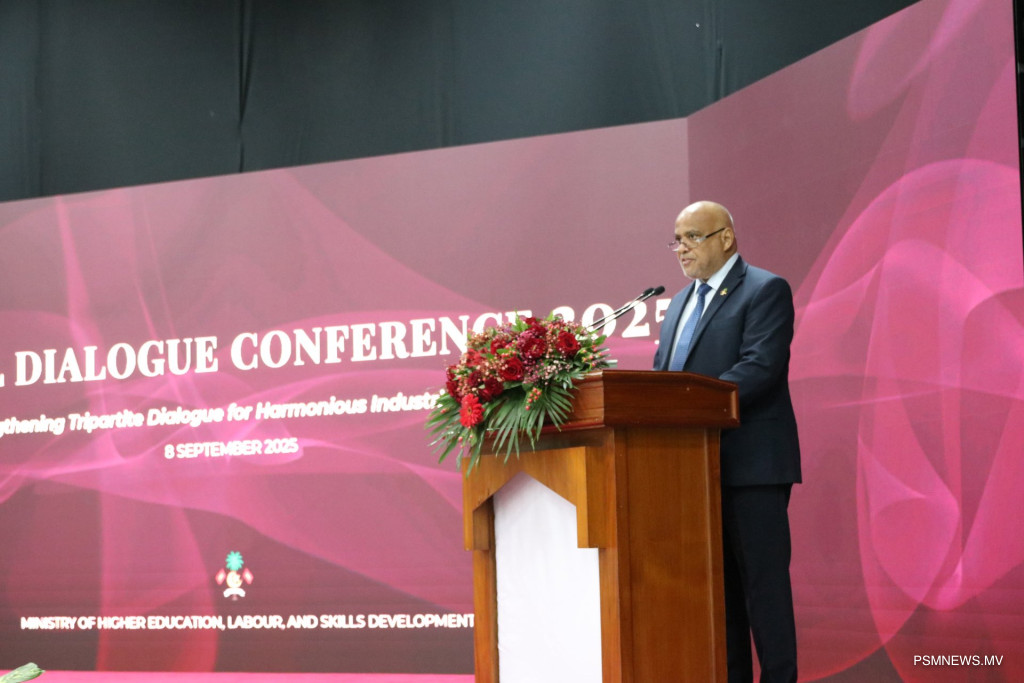
The Maldives has held its inaugural ‘Social Dialogue Conference 2025’, a one-day summit convened to confront longstanding challenges in the nation’s employment and construction sectors. The gathering marks a significant milestone in the country’s labour reform efforts, following the ratification of the Industrial Relations Act in 2024.
Opening the conference, Dr Ali Haidar Ahmed, Minister of Higher Education, Labour and Skills Development, called for public safety to be recognised as a national obligation. Addressing attendees, he stressed the importance of balancing institutional progress with the protection of society at large.
The event brought together a wide spectrum of stakeholders, including representatives from the Labour Ministry, the United Nations International Labour Organization (ILO), the Tripartite Labour Advisory Board, and various entities from the industrial and construction sectors. It was the first time such a coalition had convened under the framework of the new legislation.
Participants engaged in a comprehensive review of the current state of labour across the country. Discussions centred on identifying the most pressing issues faced by workers and exploring collaborative solutions through structured dialogue.
Minister Haidar outlined a national vision that prioritises secure working conditions, peaceful resolution of disputes, and expanded opportunities for youth through targeted skills development. He also highlighted the role of social cohesion and business growth in achieving broader institutional goals.
Progress under the industrial relations law was highlighted, with the minister noting the strengthening of regulatory bodies, including the tripartite advisory board. He cited the launch of a joint programme with the ILO aimed at supporting workers, and confirmed that revisions to the national minimum wage are currently underway.
The conference forms part of a wider initiative to safeguard workers’ rights and foster a resilient employment ecosystem. Central to this effort is the tripartite labour advisory board, a ten-member body operating under the labour ministry, which continues to play a pivotal role in shaping policy and practice.
